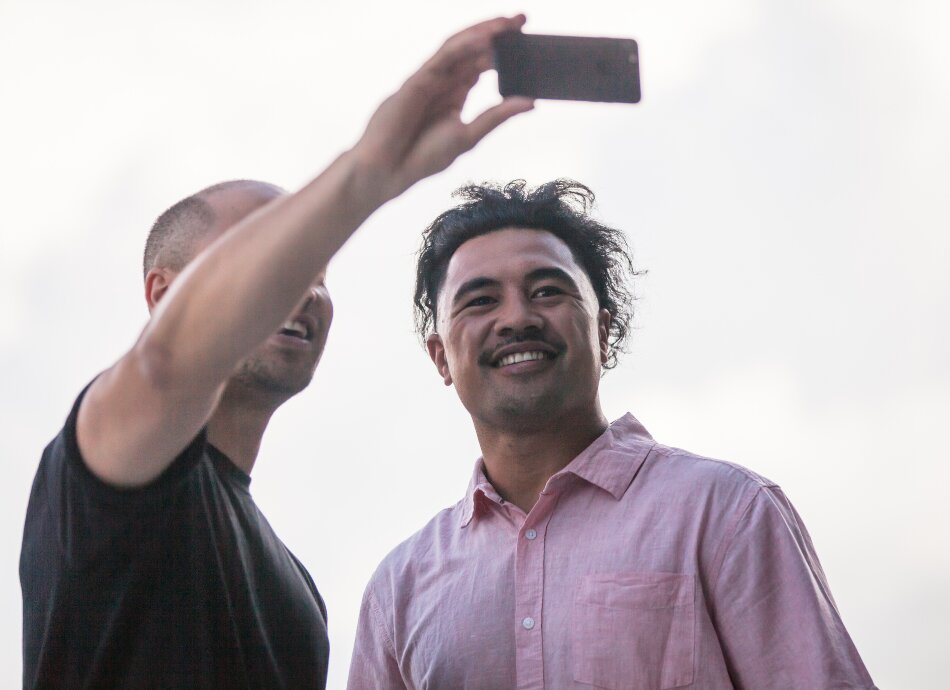The most common type of tooth wear is called dental erosion. This is caused by acid in your mouth wearing down the tooth enamel (the outer, protective tooth coating). This can increase your chance of developing decay and cavities. Your saliva neutralises acid, but if you have too much acid it can damage your enamel. Read more about tooth wear.
We're aware of a problem when trying to use Zero Data to link to Healthify. Zero Data is managed by Health NZ and we are working with them to get this fixed.
Tooth wear and how to prevent it
Key points about preventing tooth wear
- Having healthy teeth can make a huge difference to your overall health, that’s why it’s so important to look after them.
- One of the ways to do this is to avoid tooth wear.
- Here are some tips for how to prevent tooth wear so your teeth will have a better chance of staying healthy and lasting a lifetime.

1. Brush twice a day
Gently brush your teeth twice a day using a soft or medium bristled toothbrush and a fluoride toothpaste. Spit don’t rinse so the fluoride stays on your teeth for longer. If you've consumed anything acidic, wait half an hour before brushing your teeth. If you do it sooner more damage can be done because tooth enamel is temporarily softened by acid and can be damaged by brushing too soon. Floss or use an interdental brush once a day.
2. Cut out acidic food and drink
Acidic food and drink eat away at your tooth enamel. It’s a slow process that you don’t usually notice until it’s too late. Acidic food (eg, citrus fruits) and acidic drinks (eg, fizzy drinks, including carbonated water, sports drinks, fruit juice and wine) should be consumed in moderation. Products with lots of caffeine can cause problems too. Remember, water and milk are the best drinks for you.
3. Rinse your mouth with water
After consuming acidic food or drink, rinse your mouth straight away with water. Also, some medicines contain acids/sugars (eg, lactulose) so rinse your mouth after taking medicines.
4. Drink plenty of water
Saliva is protective against tooth erosion. If you become dehydrated you can produce less saliva putting you at risk of dry mouth and dental disease. Keep your water intake up and drink fluoridated water when you can. Some medicines have dry mouth as a side effect and can cause tooth problems if you take them for a long time (eg, antihistamines, decongestants, opioid pain medicines, high blood pressure medicines, antidepressants and Parkinson’s disease medicines).
5. Avoid snacking between meals
Snacking increases your chance of tooth decay because your mouth is acidic for a few hours after eating food high in sugar or starches. If you want something to eat between meals stick to foods that aren’t sugary, acidic or sticky (eg, carrot, celery, cheese, plain nuts). Alternatively, chew on some sugar-free gum. The more often acids are put in your mouth, the worse your tooth erosion will probably be. Try to have long breaks between eating instead of snacking a little more often.
6. Chew sugar-free gum
After a meal, chew sugar-free gum. This increases your saliva, which balances out the acid.
7. Don’t bite hard objects or grind your teeth
Biting your nails, chewing your pen or using your teeth to open bottles can wear your teeth down. Even chewing on ice can damage your teeth. Also, grinding your teeth at night can wear them down. Talk to your dentist about ways to guard against grinding your teeth.
8. Get help with health conditions that lead to tooth erosion
Some health conditions can result in tooth erosion due to having acid in your mouth from vomiting (being sick). These include gastro-oesophageal reflux (GORD) and bulimia. If you have either of these conditions, it’s important to talk to your healthcare provider. GORD can often be silent, meaning you have no symptoms and don’t know you have it.
9. Finally, make sure you have regular check-ups with your dentist
Detecting tooth erosion early can help you and your dentist manage it, regular check-ups make it more likely it will be picked up. Remember, dental check-ups are free for tamariki and rangatahi until they turn 18 in Aotearoa New Zealand.
References
- Tooth wear(external link) Queensland Government, Australia, 2022
- The best snacks for healthy teeth(external link) Patient Info, UK, 2018
- Worst foods for your teeth(external link) Healthline, US, 2023
- Medications that cause tooth decay(external link) GoodRx Health, US
Credits: Healthify editorial team. Healthify is brought to you by Health Navigator Charitable Trust.
Reviewed by: Sophie McKenna, General Dental Surgeon
Last reviewed:





